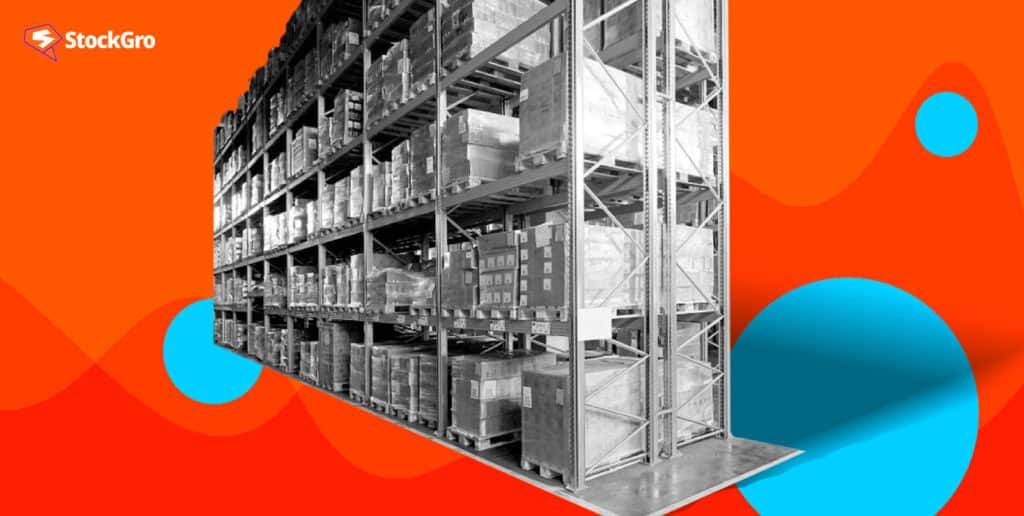
Do you own a manufacturing company and want to increase output while decreasing expenses? Bonded manufacturing in India is the best option. Many businesses are looking to set up bonded manufacturing units in India because of the country’s thriving economy and generous investment incentives.
Bonded manufacturing presents several advantages and opportunities in India, which will be discussed in this article.
What is bonded manufacturing?
Companies are using bonded manufacturing in India to address global supply chain complexity and production efficiency. This innovative model offers tax breaks, savings, and simplified logistics to businesses.
Bonded manufacturers import components and raw materials duty-free if they export final products. This reduces production costs and meets customs requirements. India’s large supplier network and skilled workers make it a popular bonded manufacturing location.
Companies can gain a competitive edge by using India’s large consumer market and low production costs with bonded manufacturing units. With this model, businesses can improve inventory management and supply chain control.
Bonded manufacturing in India offers growth and profit in today’s business environment. More companies are using the model to expand their global manufacturing capacities due to its many benefits and favourable business climate.
Distinctions
To handle and test legally regulated substances, such as pharmaceuticals and chemicals, the government grants permission to certain establishments to operate as bonded manufactories or bonded manufacturing factories. Security, specialised licences and permits, and routine inspections ensure these factories comply with regulations.
Bonded factories delay customs duty and IGST until finished goods are sold domestically or exported, which is their main benefit.
Non-bonded manufacturers lack the authorisation to handle controlled substances. Despite not having the same regulations or security as bonded factories, they can manufacture. Every duty and inspection needs immediate attention.
Bonded laboratories handle and test restricted substances under government approval. They are regularly inspected and must follow security protocols. Non-bonded labs cannot handle controlled substances. They can conduct scientific research and analysis without the security and regulatory oversight of bonded laboratories.
Overall, the difference between bonded and non-bonded manufactory lies in customs supervision and the deferral of tax/duty payments. Similarly, the difference between a bonded and non-bonded laboratory lies in the authorisation to handle and test controlled substances.
Advantages of bonded manufacturing
Businesses in search of production process optimisation should consider bonded manufacturing in India due to its numerous benefits.
- Tax-free imports of raw materials and components can cut production costs in half. This cost advantage could revolutionise industries with complex manufacturing processes or expensive components.
- Without import duties, companies could invest more in other growth areas.
- Bonded manufacturing in India ensures customs compliance. Sending finished goods abroad helps companies avoid fines.
- Due to tightening customs regulations, bonded manufacturing is crucial in global business. When they use bonded manufacturing, companies can focus on customer growth without worrying about compliance.
- Businesses benefit from India’s large qualified worker supply chain. Companies can find the resources they need for manufacturing because there are trained professionals in many industries and many suppliers.
- This reduces lead times and boosts operational efficiency.
Also read: Understanding cost-cutting and its role in running a business successfully
Bonded manufacturing process in India
Businesses looking to reap the benefits of India’s bonded manufacturing process must adhere to a predetermined set of guidelines.
- Companies looking to operate as bonded manufacturing units must first apply for a licence with the customs department. The company’s financial stability, history, and compliance with customs regulations are considered when granting this licence.
- Once the necessary licence is obtained, businesses can import raw materials and components duty-free. These imported goods are kept in a bonded warehouse, an area specifically authorised by customs.
- The materials are stored in a safe and controlled environment until they are utilised in production at the bonded warehouse.
- The final step in production is shipping the finished goods to the customer. This export is essential to stay in line with customs regulations and ensure the advantages of bonded manufacturing are enjoyed.
- Businesses must keep precise records of all incoming raw materials, outgoing manufactured goods, and processes throughout the process. The customs department checks these records regularly to ensure the bonded manufacturing rules are being followed.
Regulatory requirements for bonded manufacturing
Businesses must follow specific regulatory guidelines established by the customs department to operate a bonded manufacturing unit in India.
- Obtain necessary licences from the customs office.
- Adhere to customs rules for entry and departure of goods.
- Maintain accurate documentation and valuation of goods.
- Comply with the export regulations of the destination country.
- Document and store all transactions involving bonded manufacturing.
- Ensure customs officials can easily access and verify these records.
Key industries using bonded manufacturing in India
Several sectors in India’s economy are taking advantage of bonded manufacturing to boost output and differentiate themselves from rivals.
Bonded manufacturing is popular in auto manufacturing. Bonded manufacturing streamlines automotive production in India, a major manufacturing hub, by allowing duty-free imports. This helps them maintain market share and competitive pricing.
The Indian electronics industry benefits from bonded manufacturing. As demand rises, the electronics industry benefits from duty-free imports of raw materials and components. Due to this cost advantage, companies can meet rising electronic product demand at competitive prices.
Indian pharmaceutical companies use bonded manufacturing to improve production. Drug manufacturers can reduce production costs and offer cheaper healthcare by importing raw materials duty-free. This has made life-saving drugs more accessible and made India a global pharmaceutical manufacturing hub.
Challenges and risks of bonded manufacturing
Although there are many benefits to bonded manufacturing in India, companies should be aware of the risks and difficulties that come with the process.
- Customs regulations complexity: Companies must stay updated with changing customs regulations to ensure compliance. Customs procedures and paperwork require specialised resources and knowledge.
- Potential supply chain disruptions: Despite India’s large supplier network, natural disasters and political unrest can cause disruptions. Businesses should have contingency plans to minimise supply chain disruptions and maintain production.
Companies should also weigh the pros and cons of Indian bonded manufacturing. There is a huge savings, but infrastructure needs, transportation costs, and supply chain effects must be considered. A complete cost-benefit analysis is needed to make an informed decision.
Government initiatives and incentives for bonded manufacturing
The Indian government has launched many programmes and subsidies to encourage bonded manufacturing.
One such effort is the ‘Make in India’ initiative, which promotes domestic manufacturing and foreign investment. This campaign’s government efforts to streamline regulations, make doing business easier, and streamline the regulatory process have benefited businesses financially.
Bonded manufacturing units also benefit from government tax breaks. Bonded manufacturers receive tax breaks like no customs duty on certain imported parts and raw materials, lower corporate tax rates, and special treatment for export-focused units.
The government has also created SEZs nationwide to promote bonded manufacturing. SEZs offer infrastructure, tax breaks, and simplified regulations to businesses. Companies can benefit from bonded manufacturing by setting up their production units in ideal conditions.
Also read: Financial literacy advocacy: A beacon of hope for underserved communities
Bottomline
Bonded manufacturing in India offers a promising opportunity for expansion and financial gain. More and more businesses are adopting this strategy to improve their global manufacturing capacities and remain competitive in today’s market. This trend is largely due to government initiatives and incentives, along with the country’s favourable business climate.
Further reading: Unlocking prosperity: The transformative power of financial literacy
